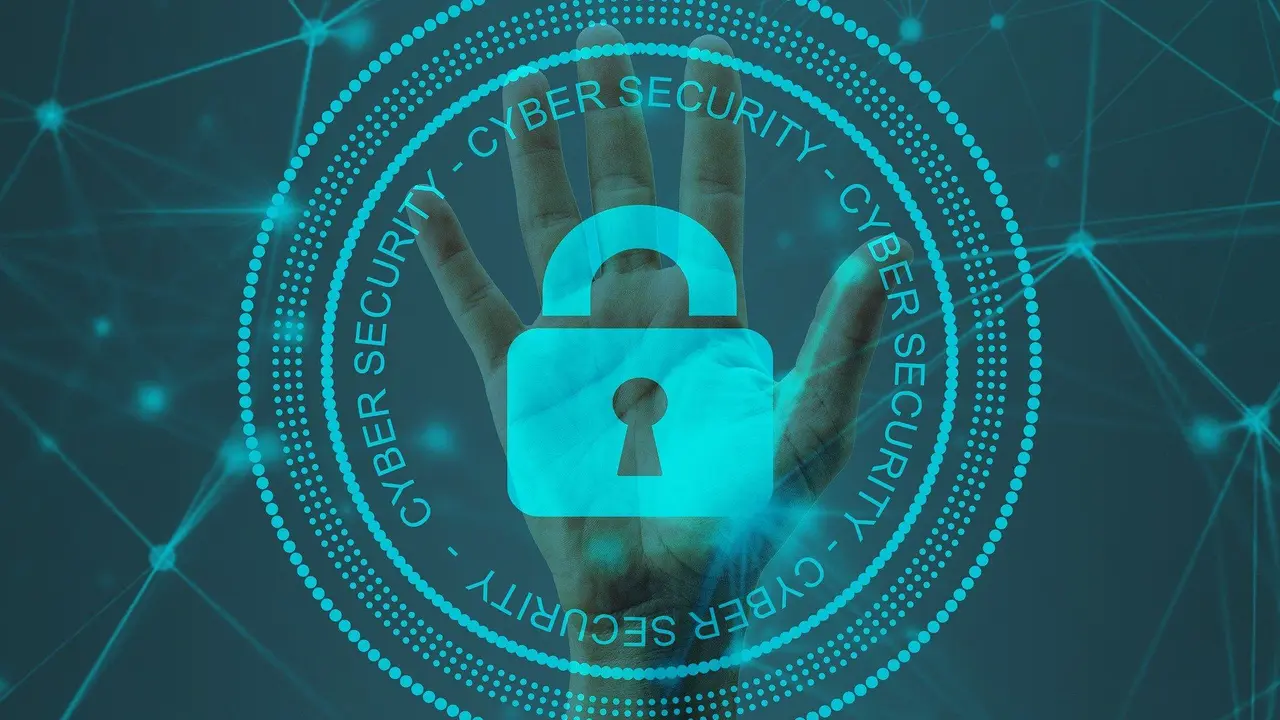Cybersecurity Skills The Ultimate Guide to a Secure Career
Your ultimate guide to cybersecurity skills. Learn how to build a secure and rewarding career in cybersecurity.

Cybersecurity Skills The Ultimate Guide to a Secure Career
Hey there! Ever thought about diving into the world of cybersecurity? It's a field that's not just booming but also incredibly crucial in our increasingly digital lives. Every day, we hear about data breaches, cyberattacks, and privacy concerns. This isn't just big news; it's a massive call for skilled professionals who can protect our digital assets. If you're looking for a career that's challenging, constantly evolving, and offers excellent job security and compensation, then cybersecurity might just be your calling. This guide is designed to give you a comprehensive overview of what it takes to build a secure and rewarding career in this exciting domain.
Why Cybersecurity Matters More Than Ever Understanding the Digital Threat Landscape
Let's face it, almost everything we do now involves technology. From online banking and shopping to social media and remote work, our lives are intertwined with the internet. This convenience, however, comes with risks. Cybercriminals are constantly looking for vulnerabilities to exploit, whether it's to steal personal data, disrupt services, or extort money. The consequences of these attacks can be devastating for individuals, businesses, and even governments. Think about the financial losses, reputational damage, and loss of trust that can result from a major cyber incident. That's why the demand for cybersecurity professionals is skyrocketing. Companies are desperate for people who can identify threats, implement protective measures, and respond effectively when things go wrong. It's not just about fixing problems; it's about proactively safeguarding our digital future.
Essential Cybersecurity Skills What You Need to Know to Get Started
So, you're convinced cybersecurity is the path for you. Great! But where do you even begin? It's a broad field, and while you don't need to be an expert in everything, a solid foundation in several key areas is crucial. Let's break down the core skills:
Technical Foundations Core IT Knowledge for Cybersecurity Professionals
- Networking Fundamentals: You can't protect a network if you don't understand how it works. This includes TCP/IP, routing, switching, firewalls, and VPNs. Knowing how data flows is paramount.
- Operating Systems: Proficiency in Windows, Linux, and macOS is essential. You'll need to understand their security features, vulnerabilities, and how to harden them.
- Programming/Scripting: While you don't need to be a full-stack developer, scripting languages like Python, PowerShell, or Bash are invaluable for automation, analysis, and developing custom tools.
- Cloud Computing: With so many organizations moving to the cloud (AWS, Azure, Google Cloud), understanding cloud security principles, configurations, and best practices is non-negotiable.
- Database Knowledge: Many attacks target databases. Understanding SQL, database security, and how to protect sensitive data is a key skill.
Security Specific Skills The Pillars of Cyber Defense
- Threat Intelligence: The ability to gather, analyze, and act on information about current and emerging cyber threats.
- Vulnerability Management: Identifying, assessing, and mitigating security weaknesses in systems and applications. This often involves using vulnerability scanners and penetration testing.
- Incident Response: The process of detecting, analyzing, containing, eradicating, and recovering from cyberattacks. This is where you become the digital firefighter.
- Security Architecture and Design: Designing secure systems and networks from the ground up, incorporating security best practices at every stage.
- Cryptography: Understanding encryption, hashing, and digital signatures is vital for protecting data in transit and at rest.
- Identity and Access Management (IAM): Managing who has access to what resources and ensuring proper authentication and authorization.
- Security Information and Event Management (SIEM): Using SIEM tools to collect, analyze, and correlate security logs to detect threats.
- Governance Risk and Compliance (GRC): Understanding legal, regulatory, and organizational requirements related to cybersecurity.
Soft Skills for Cybersecurity Success Beyond the Technical
- Problem-Solving: Cybersecurity is essentially a giant puzzle. You need to be able to analyze complex situations and find creative solutions.
- Critical Thinking: Don't just accept things at face value. Question assumptions, analyze evidence, and think strategically.
- Communication: You'll need to explain complex technical issues to non-technical stakeholders, write clear reports, and collaborate with teams.
- Attention to Detail: A single misconfiguration or overlooked log entry can lead to a major breach. Precision is key.
- Adaptability: The threat landscape changes constantly. You need to be a lifelong learner, always adapting to new technologies and attack methods.
- Teamwork: Cybersecurity is rarely a solo effort. You'll work with other security professionals, IT teams, and business units.
Top Cybersecurity Certifications Boosting Your Career Credentials
While practical experience is king, certifications are an excellent way to validate your skills and open doors to new opportunities. They demonstrate a commitment to the field and a baseline level of knowledge. Here are some of the most respected and sought-after certifications, along with their target audience and approximate costs:
Entry-Level Cybersecurity Certifications Your Starting Point
- CompTIA Security+: This is often considered the foundational certification for anyone entering cybersecurity. It covers core security concepts, network security, threats, vulnerabilities, and incident response. It's vendor-neutral and highly recognized.
- Target Audience: IT professionals with 2 years of experience in IT administration with a security focus, or those looking to start a cybersecurity career.
- Approximate Cost: Exam voucher around $392 USD.
- Use Case: Ideal for roles like Security Administrator, Systems Administrator, Helpdesk Technician with security duties.
- (ISC)² SSCP (Systems Security Certified Practitioner): Another excellent entry-level option, focusing on operational security. It covers access controls, security operations, risk identification, and incident response.
- Target Audience: Practitioners responsible for the hands-on operational security of an organization's critical assets.
- Approximate Cost: Exam voucher around $249 USD.
- Use Case: Suitable for roles such as Network Security Engineer, Security Analyst, Security Consultant.
Mid-Level Cybersecurity Certifications Advancing Your Expertise
- (ISC)² CISSP (Certified Information Systems Security Professional): This is the gold standard for cybersecurity management and leadership roles. It covers a broad range of security domains and requires significant experience.
- Target Audience: Experienced security practitioners, managers, and executives. Requires 5 years of cumulative paid work experience in two or more of the eight CISSP domains.
- Approximate Cost: Exam voucher around $749 USD.
- Use Case: Essential for roles like Security Manager, CISO, Security Architect, Security Consultant.
- CompTIA CySA+ (Cybersecurity Analyst+): Focuses on behavioral analytics to improve the overall state of IT security. It's great for those who want to specialize in threat detection and response.
- Target Audience: IT professionals with 3-4 years of hands-on information security experience.
- Approximate Cost: Exam voucher around $392 USD.
- Use Case: Perfect for Security Analyst, SOC Analyst, Threat Intelligence Analyst.
- EC-Council CEH (Certified Ethical Hacker): This certification teaches you how to think like a hacker to identify vulnerabilities before malicious actors do. It's very hands-on.
- Target Audience: Security officers, auditors, security professionals, site administrators, and anyone concerned about the integrity of the network infrastructure.
- Approximate Cost: Exam voucher around $1199 USD (often includes training).
- Use Case: Ideal for Penetration Tester, Ethical Hacker, Security Auditor.
Advanced & Specialized Cybersecurity Certifications Becoming an Expert
- ISACA CISM (Certified Information Security Manager): Geared towards experienced information security managers. It focuses on governance, program development, incident management, and risk management.
- Target Audience: Information security managers, aspiring managers, or those with management responsibilities. Requires 5 years of information security work experience, with 3 years in information security management.
- Approximate Cost: Exam registration around $575 (member) / $760 (non-member) USD.
- Use Case: For roles like Information Security Manager, CISO, IT Director.
- GIAC Certifications (e.g., GSEC, GCIH, GCIA, GPEN): GIAC offers a wide range of highly technical and specialized certifications. They are known for their rigor and practical focus.
- Target Audience: Varies greatly by certification, from security administrators (GSEC) to incident handlers (GCIH) and penetration testers (GPEN).
- Approximate Cost: Exams typically range from $1999 - $2499 USD (often bundled with SANS training).
- Use Case: Highly valued for specialized roles in incident response, forensics, penetration testing, and security architecture.
Building Your Cybersecurity Lab Practical Experience is Key
Reading about cybersecurity is one thing; actually doing it is another. To truly master these skills, you need hands-on experience. Setting up your own home lab is an invaluable way to experiment, practice, and break things without fear of real-world consequences. Here's how you can get started and some tools you'll want to use:
Virtualization Software Your Cybersecurity Sandbox
Virtualization allows you to run multiple operating systems on a single physical machine. This is crucial for creating isolated environments for testing and practice.
- VMware Workstation Pro / Fusion: These are premium, feature-rich virtualization solutions. They offer excellent performance and advanced networking capabilities, making them ideal for complex lab setups.
- Use Case: Running multiple virtual machines (VMs) simultaneously, creating complex network topologies, snapshotting for easy rollback.
- Approximate Cost: Workstation Pro is around $199 USD, Fusion Pro around $199 USD.
- Oracle VirtualBox: A free and open-source alternative that's incredibly popular for home labs. It's easy to use and supports a wide range of guest operating systems.
- Use Case: Setting up individual VMs for learning specific OS security, practicing malware analysis in an isolated environment.
- Approximate Cost: Free.
- Microsoft Hyper-V: Built into Windows Pro and Server editions, Hyper-V is a native virtualization solution that's powerful and efficient.
- Use Case: If you're already on Windows Pro, it's a convenient way to create VMs without additional software.
- Approximate Cost: Included with Windows Pro/Server.
Essential Tools for Your Cybersecurity Toolkit
Once you have your virtualization environment set up, you'll want to populate it with some key operating systems and tools:
- Kali Linux: This is the go-to distribution for penetration testing and ethical hacking. It comes pre-loaded with hundreds of tools for reconnaissance, vulnerability analysis, exploitation, and more.
- Use Case: Practicing penetration testing, vulnerability scanning, network sniffing, password cracking.
- Approximate Cost: Free.
- Metasploitable 2/3: These are intentionally vulnerable Linux virtual machines designed specifically for security training. They provide a safe and legal target for practicing your hacking skills.
- Use Case: Practicing exploitation techniques, understanding common vulnerabilities, learning how to use tools like Metasploit.
- Approximate Cost: Free.
- Windows Server (Evaluation Edition): Setting up a Windows Server VM allows you to practice Active Directory security, group policy management, and Windows-specific vulnerabilities.
- Use Case: Learning Windows domain security, practicing privilege escalation, understanding common server misconfigurations.
- Approximate Cost: Free (evaluation versions).
- Wireshark: A powerful network protocol analyzer. It allows you to capture and inspect network traffic, which is crucial for understanding network attacks and troubleshooting.
- Use Case: Analyzing network traffic, identifying suspicious activity, understanding how protocols work at a low level.
- Approximate Cost: Free.
- Nmap: A free and open-source utility for network discovery and security auditing. It's used to discover hosts and services on a computer network, thus creating a 'map' of the network.
- Use Case: Port scanning, OS detection, service version detection, network inventory.
- Approximate Cost: Free.
- Burp Suite Community Edition: A popular web vulnerability scanner and proxy tool. Essential for web application security testing.
- Use Case: Intercepting and modifying web traffic, identifying web application vulnerabilities like SQL injection and XSS.
- Approximate Cost: Free (Community Edition), Professional version is around $449 USD/year.
Career Paths in Cybersecurity Finding Your Niche
The beauty of cybersecurity is its diversity. There are many different roles, each requiring a unique set of skills and interests. Here are some common career paths:
- Security Analyst: Often an entry-level role, responsible for monitoring security systems, analyzing alerts, and responding to incidents.
- Incident Responder: The front-line defenders who investigate and mitigate cyberattacks.
- Penetration Tester / Ethical Hacker: Simulates attacks to find vulnerabilities before malicious hackers do.
- Security Engineer: Designs, implements, and maintains security systems and infrastructure.
- Security Architect: Develops high-level security designs and strategies for an organization.
- Security Consultant: Provides expert advice to organizations on their security posture.
- Forensics Analyst: Investigates cybercrimes and collects digital evidence.
- GRC Analyst (Governance, Risk, and Compliance): Focuses on ensuring an organization meets regulatory and compliance requirements.
- Cloud Security Engineer: Specializes in securing cloud environments and applications.
- Application Security Engineer: Focuses on securing software applications throughout their development lifecycle.
Continuous Learning and Staying Current The Cybersecurity Imperative
The cybersecurity landscape is a constantly moving target. New threats emerge daily, and technologies evolve at a rapid pace. To succeed in this field, continuous learning isn't just a recommendation; it's an absolute necessity. Here's how you can stay ahead of the curve:
- Follow Industry News: Subscribe to cybersecurity blogs, news outlets (e.g., KrebsOnSecurity, The Hacker News, BleepingComputer), and podcasts.
- Attend Webinars and Conferences: Many organizations offer free webinars, and attending conferences (even virtual ones) can provide invaluable insights and networking opportunities.
- Participate in Online Communities: Join forums, Reddit communities (e.g., r/cybersecurity, r/netsec), and Discord servers dedicated to cybersecurity.
- Practice Regularly: Keep your home lab active. Try out new tools, practice new attack techniques, and analyze recent vulnerabilities.
- Pursue Advanced Certifications: As you gain experience, consider more specialized certifications to deepen your expertise in specific areas.
- Read Books and Whitepapers: There's a wealth of knowledge in cybersecurity literature.
- Contribute to Open Source Projects: If you have programming skills, contributing to open-source security tools can be a great way to learn and build your portfolio.
Building a secure and rewarding career in cybersecurity is an exciting journey. It requires dedication, continuous learning, and a passion for protecting the digital world. By focusing on foundational skills, gaining practical experience, pursuing relevant certifications, and staying current with the ever-evolving threat landscape, you'll be well-equipped to make a significant impact in this critical field. Good luck on your journey!
:max_bytes(150000):strip_icc()/277019-baked-pork-chops-with-cream-of-mushroom-soup-DDMFS-beauty-4x3-BG-7505-5762b731cf30447d9cbbbbbf387beafa.jpg)






